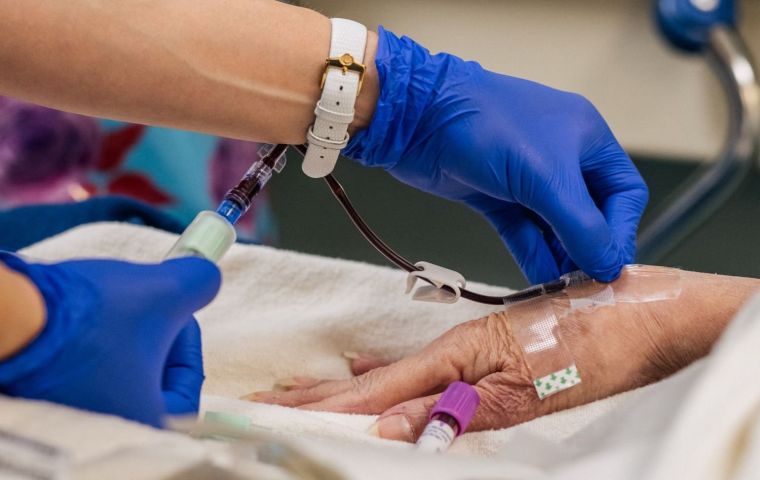MercoPress. South Atlantic News Agency
Palliative care now mandatory for healthcare providers in Uruguay
 If it is possible and the means are there, why are we condemning thousands of Uruguayans today to die suffering?” Senator Goñi wondered
If it is possible and the means are there, why are we condemning thousands of Uruguayans today to die suffering?” Senator Goñi wondered Uruguay's Senate passed a bill unanimously Tuesday providing for universal access to palliative care. All 26 senators present voted in favor of the Uruguayan Society of Palliative Medicine and Care's (SUMCP) initiative dating back to 2020, it was reported in Montevideo. Forty-one percent of the population is still not guaranteed access to palliative care.
The project's approval was “a kick-start for society as a whole to become aware and begin to address palliative care from within society,” SUMCP Vice President Rita Rufo told EFE. She added that Uruguay was “a privileged country” where “we think of the person” unlike other nations where she hoped similar measures could be implemented soon.
“This law commits us all, it is not only what the highly specialized teams are going to do. Of course, we are going to demand better quality from these teams, but we are going to have to understand that each and every one of us is part of the care of these people,” Rufo stressed. “We have to fine-tune, work, polish, train people so that this can happen,” she added.
Opposition Broad Front (left) Senator Sandra Lazo argued during the Parliamentarian debate that Uruguay, which in 2012 promoted the creation of the so-called National Palliative Care Plan, has been a “vanguard” in palliative care for years, so this law will serve to “improve” coverage. Lazo also pointed out that the objective was to reach 41% of the population that still does not have access to this care.
Senator Rodrigo Goñi of the ruling National Party underlined that this law was “necessary” when there were “thousands of Uruguayans who today are suffering in many cases in an unbearable way.”
“Today medical science and the Uruguayan healthcare system have all the possibilities so that no one suffers these unbearable sufferings and in many cases dies suffering. If it is possible and the means are there, why are we condemning thousands of Uruguayans today to die suffering?” he wondered.
The new norm establishes that the care of patients, who suffer from serious, progressive, and advanced diseases - with little or no response to specific treatments - is a universal right. Hence, anyone who needs care in very hard and suffering stages can receive it from multidisciplinary teams, which medical institutions will have to provide. The law compels public and private healthcare providers to give palliative care to patients regardless of age, sex, race, religion, and nationality. All institutions will have to have teams to deal with outpatient cases, hospitalizations, and telephone consultations.
Frente Amplio sources quoted by local media said their space viewed the approval of this law as a prelude to the treatment of the euthanasia bill.




Top Comments
Disclaimer & comment rulesCommenting for this story is now closed.
If you have a Facebook account, become a fan and comment on our Facebook Page!